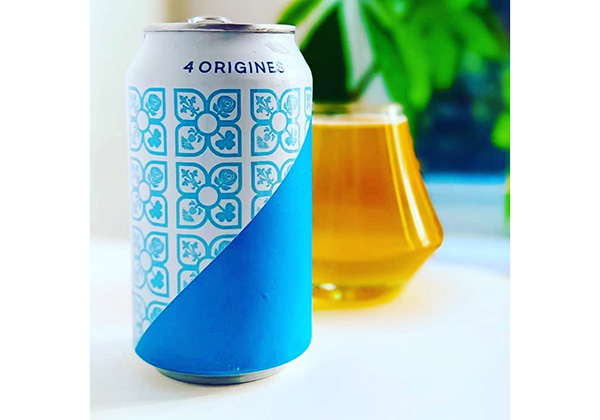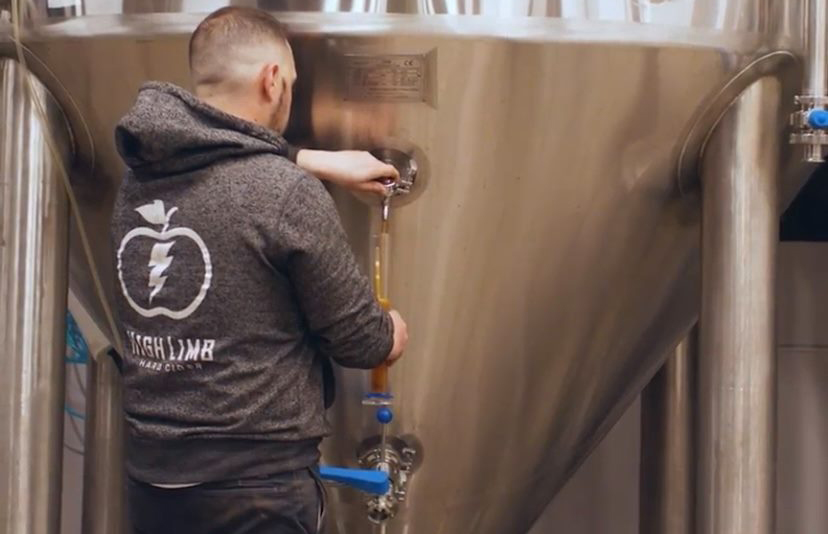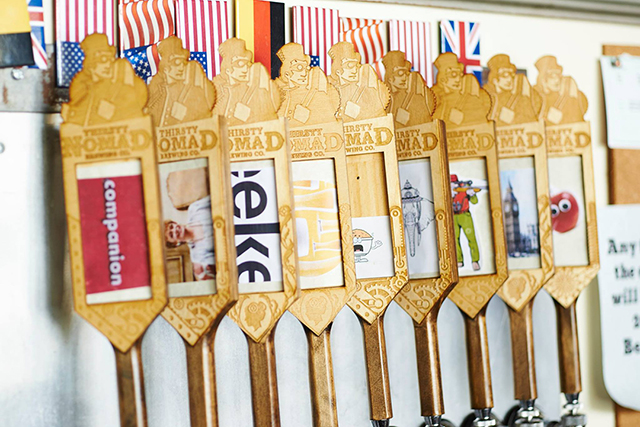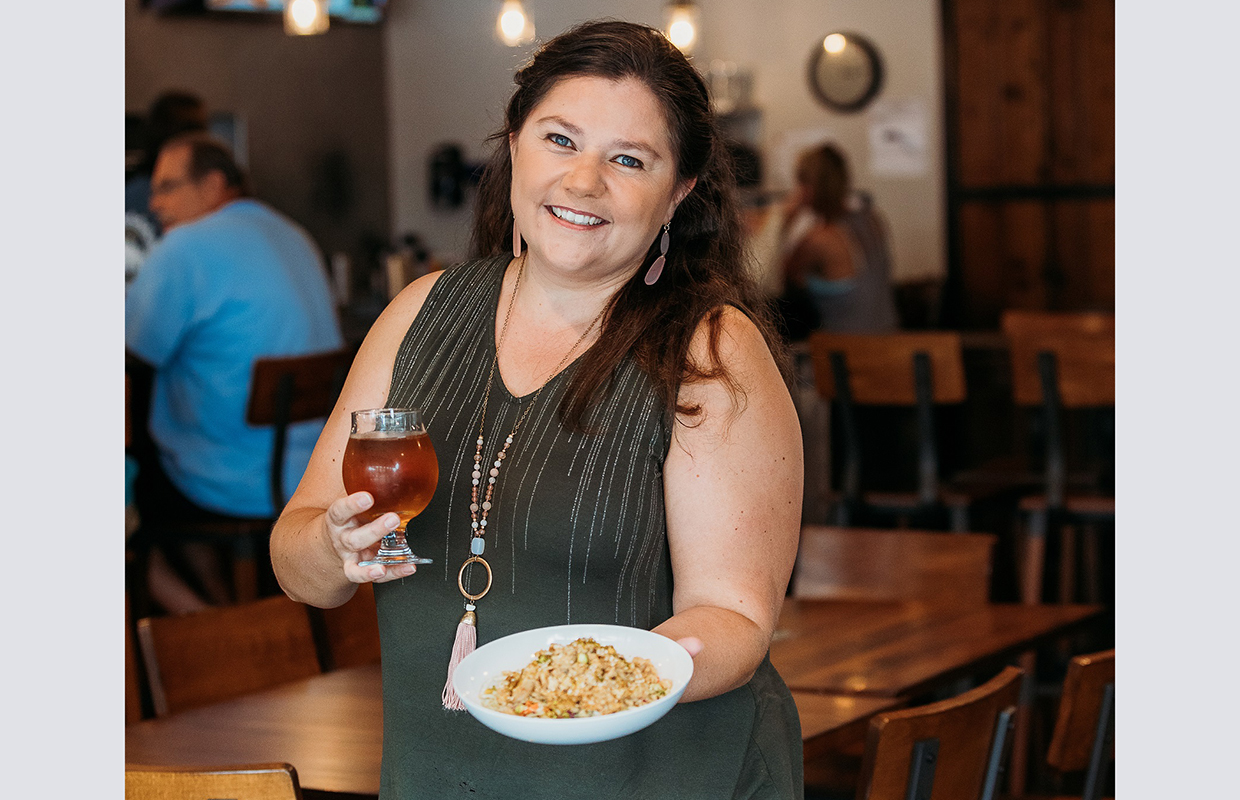
International Insights is a continuing series of Q&As with brewing members, but this time branching outside of the US and into the rest of the world.
In this series, Brewer will share personal insights from international breweries each week about the craft beer market in other countries, where those brewers get their inspiration, and how the market compares to craft beer in the US.
MICHAEL D’ORNELLAS, President and Co-Founder, 4 Origines — Québec
BREWER: What can you tell me about the history of 4 Origines and the most popular beers at your brewery?
D’ORNELLAS: We opened our doors to the public in April 2018 as a commercial brewery. Our head brewer, Braden Richards, has years of industrial experience, and I was homebrewing for 10 years before we opened up. Throwing dozens of “Homebrew Parties” over years, it allowed me to experiment with hundreds of recipes and finally meet my business partner. We spent about four years coming up with the brand and business plan before executing an equipment order and signing a lease in 2017. 4 Origines as a brand symbolizes many things, but at the center is about the four main ingredients in beer: water, malt, hops and yeast. We appreciate the deep meaning behind the number four, be it classic ingredients, directions, elements or various other combinations. It also ties into the original Montreal flag and crest, representing four of the early founding countries of the city, all of whom have brewing heritage, for which we found it suiting. Our most popular beers are our botanical infused Witbier, Botanik; our session IPA, Coté Canal; our apricot tea Pale Ale, Apriknot; and our Hazy Pale Ale, La 514.
BREWER: What are the popular styles in Québec? How does that compare to the rest of Canada?
D’ORNELLAS: Based on my knowledge and opinion of popular styles in Québec, I’d say that there have been several waves of consumer trends over the years, some based on circumstance and others on hype. Many of the ‘founding’ Québec breweries, which still operate today, began by producing Belgian-style Ales and Wheat beers. From what I understand, in the 80s, Belgian yeast was the most viable and available strain, which simply translated to a higher chance of successful fermentation after pitching the yeast and therefore a stronger desire to work with it on the part of the brewery owners (for practical and financial reasons). A seldom few breweries picked up on the notion of “American IPA” here early on, however we went more in the direction of strong Ales, light (or borderline) Pale Ales and Stouts. Our early breweries got into barrel aging, souring and ‘funk’ but I feel that it took a while for some of the great recipes we have today to come together (although they most certainly have). Our local ‘terroir’ also allows Québec breweries to have fun with fruit beers. With a strong agricultural economy and hundreds of small farms throughout the province, we all have unique and accessible fruit selections to make for our beers, going anywhere from sea buckthorn (which we use in a collaborative beer with Joe Beef) to ripe blueberries and raspberries. Lately we’ve been hit with the “haze craze” and the flood of demand for the dankest, juiciest and strongest IPAs. It feels like we can never make enough double dry-hopped anything to satisfy craft beer amateurs here. Compared to the rest of Canada, I would say what we lack the most of is classic Pale Ales, West Coast IPAs and American Pilsners, although the latter is starting to show up on a small scale.
BREWER: Where do you get inspiration for new beers?
D’ORNELLAS: Braden and I get inspiration primarily from traveling to taste other regional trends and flavours, constantly pushing the boundaries of both brewing technique and recipe construction as well as simply strolling the local markets to find something interesting and fresh. Personally my biggest inspiration comes from the incessant need to find a beer suitable for everyone and anyone. I refuse to accept the statement “I don’t like beer” unless it’s a health concern, I believe that most people simply haven’t found the beer right for them and if it doesn’t exist, then we’ll brew it. A lot of great beers simply come from an educated deconstruction of another beer that interests the brewer. After the ingredients are discovered and the techniques are understood, you start from scratch using that predecessor beer as your true inspiration to bring your vision to life.
BREWER: How has COVID-19 affected your country and your brewery? What restrictions have been put in place by the government, and how are you adapting?
D’ORNELLAS: COVID-19 has been rough for the entire industry and we at 4 Origines haven’t been impacted any differently. Mid-March, the government completely shut down the taproom, which forced us to temporarily let go of all staff on the taproom side and half of our production team, given that sales and profits were more than cut in half. After a few weeks of uncertainty, retail sales of beer started to give us hope, as scared and isolated customers continued to support and drink our beer from home. We were lucky enough to have a high level of inventory and our bottle shops could remain open (seen as grocery). As this increased retail consumer demand continued, we’d made the choice early June to hire all production staff back and by the end of June also brought back our taproom staff as the deconfinement began. While overall volumes at the taproom are down (expected), we are able to maintain with our distribution continuing on a steady basis. We have adapted by physically separating our taproom and bottle shop, which prior to COVID were more overlapping, allowing us to focus on beer-to-go, which is relatively new or has been brought further into the spotlight here in Québec.






Be the first to comment